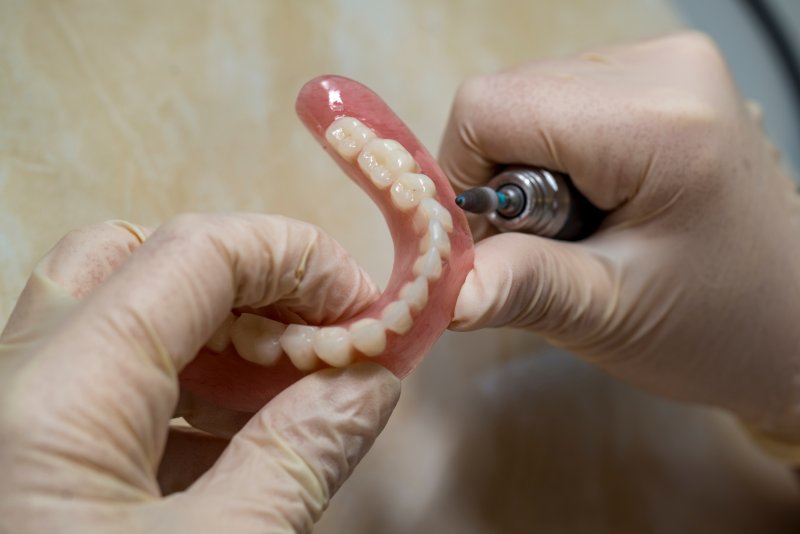
Dentures are an excellent tooth replacement option for people who are missing multiple, most of, or all of their teeth. While they fit great at first, the mouth changes over time, and eventually, you will need to have your dentures relined. You can do this by seeing your dentist, but can you also reline your dentures at home? Continue reading to learn more about this process and whether or not using a DIY kit is a good idea.
Can You Reline Your Denture Yourself?
These days, there seems to be a DIY kit for everything. However, it is never recommended or advisable to reline dentures yourself. Only a dental professional is best able to examine your unique situation and advise you accordingly. It is best to trust your dentist to help with the reline process as you are less likely to end up with a damaged denture that doesn’t fit properly. An ill-fitting dentures can lead to a variety of issues, like inflammation, irritation, and blisters.
Why Do Dentures Need to Be Relined?
Dentures are customized to fit your smile exactly. That’s why you had to go through the process of having impressions taken when you first got them. However, you may notice that after a few years, your dentures don’t fit how they used to. This isn’t because your dentures have changed. Instead, your smile changes over time because your jawbone is no longer being stimulated by tooth roots, therefore requiring your dentures to be altered. If you don’t, you can end up with a variety of different issues, including:
- Gum inflammation and irritation
- Blisters, cuts, and scrapes inside the mouth
- Headaches and earaches due to abnormal jaw pressure
- Difficulty eating, which can lead to indigestion
- Jawbone atrophy
How Does Denture Relining Work?
Relining dentures involves adding new material to the inside surface of a denture to improve how it fits in the mouth. Generally, the first step of a permanent reline is getting a thin impression inside of your existing denture. Then the denture is sent to the dental lab where acrylic material is used to fill in the gaps where the gums have changed.
As opposed to a permanent reline, a soft reline is used when a patient has very sensitive tissue or excessive bone loss. This type of reline acts as a cushion to the denture, but it doesn’t tend to last as long.
Relines are necessary, but it isn’t a great idea to attempt this process on your own. With the help of a dental professional, your teeth will be fitting snug again in no time!
About the Author
Dr. Ryan Johnson earned his dental doctorate from the University of Colorado School of Dental Medicine. He is extremely passionate about continuing education and is pursuing a Fellowship with the Academy of General Dentistry. For more information about dentures and other tooth replacement options, visit his website or call (904) 895-4536.
